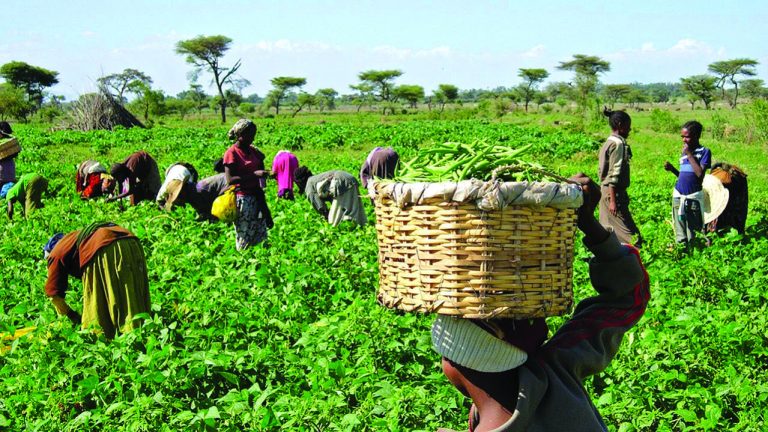Farmers across many parts of Kaduna State are increasingly shifting from staple food crop cultivation to vegetable farming, driven by the high cost of fertilizer and other agricultural inputs.
A former Executive Director of the Institute for Agricultural Research, Ahmadu Bello University (ABU), Zaria, Professor Faguji Ishiyaku raised the concern in Zaria on Tuesday. He warned that the trend could threaten national food security if left unchecked.
Ishiyaku explained that with the continued rise in production costs, farmers had recognized early on that cultivating major crops like maize might no longer be profitable. This, he said, had prompted many to switch to crops such as pepper, chilli, soybean, and cowpea.
He noted that the change in cultivation patterns could make the country more dependent on imported grains, thereby putting pressure on both the economy and food supply.
According to him, a shortfall in grain production would likely drive up food prices next year. Many farmers, having abandoned staple crops, may also lack enough food for their own families.
He urged farmers to strike a balance between vegetable cultivation and staple crop production to reduce the growing food deficit in the country. He added that it was still not too late in the planting season to grow crops like maize, sorghum, and soybean.
A farmer in Zaria, Ahmed Abubakar confirmed the trend, saying farmers were now planting onions, chilli, pepper, okra, and other vegetables instead of maize, sorghum, and rice. He attributed this shift to the crash in crop prices at the commodities market, allegedly caused by grain imports.
He noted that a 100kg bag of maize currently sells for between N38,000 and N45,000, depending on the variety. In contrast, a 50kg bag of Granular Diammonium Phosphate (GDAP) fertilizer costs about N75,000—more than the market value of a full 100kg bag of maize, sorghum, or rice.
Abubakar said a 50kg bag of NPK 20:10:10 fertilizer now costs around N40,000, while NPK 15:15:15 sells for over N50,000. Urea is also priced at around N40,000. When other production costs such as herbicides and land preparation are added, the economic case for cultivating grains becomes weak.
He explained that a 100kg harvest of pepper or soybean could earn a farmer enough money to purchase two bags of fertilizer, making vegetable cultivation more attractive and economically viable.
Abubakar warned that this trend poses a serious threat to Nigeria’s food security agenda, especially as the country currently produces about 6.5 million tonnes of maize annually—falling short of the estimated national demand of 8 million tonnes.
He emphasized that Kaduna State is one of Nigeria’s top maize-producing regions, and the shift away from maize could deepen the existing production gap.
Abubakar cited advice from agricultural extension agents, who said farmers could still plant maize up until July 16, and transplant sorghum and rice between July 16 and July 31.
He appealed to all tiers of government to provide subsidised fertilizer and inputs to farmers to encourage continued production.
The Chairman of the All Farmers Association of Nigeria (AFAN), Kaduna State chapter, Nuhu Aminu also linked the widespread shift from food crops to vegetable farming to the soaring costs of inputs.
He added that the high cost of cultivation had discouraged some large-scale farmers from participating in this year’s planting season.
Aminu called for immediate action, stressing that it was not too late for peasant farmers to diversify their production and help reduce the risk of future food crises.
He also lamented that neither the federal nor the Kaduna State government had distributed fertilizer or inputs to farmers for the 2025 wet season farming.


